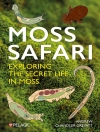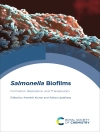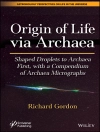This book presents cutting-edge papers and perspectives on the transport of oxygen to tissues by scientists in a multitude of disciplines such as biochemistry, engineering, mathematics, medicine, physics, physiology, veterinary and complementary medicine. The book is composed of the following 6 parts: Brain Oxygenation and Function, Tumor Oxygenation and Metabolism, Muscle Oxygenation and Sports Medicine, Cell Metabolism and Tissue Oxygenation, Methodology of O2 Measurements, and Special Topics. The articles in this book have been presented at the 49th annual meeting of the International Society on Oxygen Transport to Tissue (ISOTT 2022). Academics, clinical and industry researchers, engineers, as well as graduate students who are interested in oxygen transport to tissue will find this book a great reference and a useful learning resource.
Tabella dei contenuti
Brain Tissue Oxygen and BOLD f MRI Under Different Levels Of Neuronal Activity.- Cerebral Microcirculation and Oxygenation Modulation by Transcranial Alternating Current Stimulation in Awake and Anesthetized Mice.- The Effect of Hypercapnia on Cortical Metabolic Rate and Mitochondrial Redox Status.- Relationship Between Left-Right Dominancy of Prefrontal Cortex Activity and Heart Rate During Rest and Task Periods: An f NIRS Study.- Relationship Between Cognitive Function, Oral Conditions and Systemic Metabolic Function in the Elderly.- Pro-survival Phenotype of HIF-1α: Neuroprotection through Inflammatory Mechanisms.- Infradian Rhythms in Cerebrovascular Oxygenation and Blood Volume in Humans at Rest: A 5-year Study.- Mechanisms of Photostimulation of Brain’s Waste Disposal System: the Role of Singlet Oxygen.- Changes of Arterial and Venous Cerebral Blood Flow Correlation in Moderate-to-Severe Traumatic Brain Injury: A CT Perfusion Study.- Cerebral Net Water Uptake in Posttraumatic Cerebral Ischemia.- Brainstem Damage Underlies Changes in Hypoxic Ventilatory Response following Cardiac Arrest and Resuscitation in Rats.- Differences Between Good, Moderate and Poor Performers of a Verbal Fluency Task under Blue Light Exposure: An SPA-f NIRS Study.- Sex-specific and Dose-dependent Effects of Drag-Reducing Polymers on Microcirculation and Tissue Oxygenation in Rats after Traumatic Brain Injury.- Accuracy of Tissue Oxygen Saturation Measurements of a Textile-based NIRS Sensor.- Understanding the Role of Caveolae in Oxygen Buffering: The Effect of Membrane Curvature.- The Significance of Lipids for the Absorption and Release of Oxygen in Biological Organisms.- How Skin Color Depends on Tissue Oxygenation.- Tissue Concentration Analysis of Sulfur, Calcium and Oxygen in novel Skin Primo Nodes After Acupuncture.- Primo Vessels Inside Lymphatic Vessels are Absent in an ALS Mouse Model.- The Impact of Heterogeneous Cell Density in Hypoxic Tumors Treated with Radiotherapy.- ACritical Analysis of Possible Mechanisms for the Oxygen Effect in Radiation Therapy with FLASH.- Hyperhydration of Cancers: A Characteristic Biophysical Trait Strongly Increasing O2, CO2, Glucose and Lactate Diffusivities, and Improving Thermophysical Properties of Solid Malignancies.- No Difference in Muscle Basal Oxygenation in a Bedridden Population pre and Post Rehabilitation.- Relationship between Muscle Deoxygenation and Cardiac Output in Subjects without Attenuation of Deoxygenation Hemoglobin Concentration near the end of Ramp Cycling Exercise: A Longitudinal Study.- Image Reconstruction Using Deep Learning for Near-Infrared Optical Tomography: Generalization Assessment.- Neonatal Brain Temperature Monitoring Based on Broadband Near-Infrared Spectroscopy.- Time Domain Near-Infrared Optical Tomography Utilizing Full Temporal Data: A Simulation Study.- BIAN: A Multilayer Microfluidic-Based Tissue-Mimicking Phantom for Near-Infrared Imaging.- Do Vascular and Extracellular Measurements Consistently Reflect Intracellular p O2? Observation of Tissue Oxygenation Changes using Remote Photoplesysmography with a Smartphone.- Neurovascular, Metabolic, and Glymphatic Dynamics of the Brain Measured with f NIRS.- Imaging Cerebral Blood Vessels Using Near-Infrared Optical Tomography: A Simulation Study.- Reduced Cerebrovascular Oxygenation in Individuals with Post-Acute COVID-19 Syndrome (PACS) (“Long COVID”).- Insufficient Oxygen Supplementation During Cardiopulmonary Resuscitation Leads to Unfavorable Biological Response While Hyperoxygenation Contributes to Metabolic Compensation.- Block of the Angiotensin Pathways Affects Flow-Volume Spirometry in Patients With SARS-Co V-2 Infection.- A Prospective Observational Pilot Study on the Effects of the Activity-based Stress Release Program on the Mental State and Autonomic Nervous System in Psychiatric patients.
Circa l’autore
Felix Scholkmann, Ph D is a lecturer at the University of Zurich and a Research Associate at the Biomedical Optics Research Laboratory (Dept. of Neonatology) of the University Hospital Zurich, University of Zurich in Switzerland, and at the University of Bern in Switzerland. His research mainly concerns the fields of neurophotonics and biomedical signal processing, as well as integrative neuroscience and physiology. He has authored or co-authored over 140 research papers, book chapters and reviews.
Joseph C. La Manna, Ph D is The Jeannette M. and Joseph S. Silber Professor for the Study of Brain Sciences in the Department of Physiology & Biophysics at Case Western Reserve University. He has been a member of ISOTT since 1974 and served as Past President of the Society (2009). He is the Series Editor of the ISOTT Proceedings. He has been involved in cerebrovascular research for 40 years. His research is concerned with brain metabolism, energy and cerebral blood flow, angiogenesis and neurodegeneration. The role of these mechanisms in tissue response to pathological insults (stroke, cardiac arrest and resuscitation, hypoxia) is being actively investigated. His recent research has centered on ketones, cerebral angiogenesis and the role of hypoxia-inducible factor-1 in physiological adaptation to hypoxia, neuroprotection and ischemic preconditioning. He has authored or co-authored over 200 research papers and review chapters.
Ursula Wolf, Ph D is Professor and Director of the Institute of Complementary and Integrative Medicine at the University of Bern in Switzerland. Her research interests focus on integrative medicine, in particular patient centered research, integrative physiology, and clinical studies.












